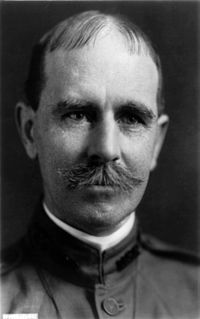A Quote by Stephen Batchelor
As for the law of moral causation ('karma'): this is human justice dressed up as cosmic justice and then imputed to the impersonal workings of the natural world.
Quote Topics
Related Quotes
When you give up vengeance, make sure you are not giving up on justice. The line between the two is faint, unsteady, and fine...Vengeance is our own pleasure of seeing someone who hurt us getting it back and then some. Justice, on the other hand, is secure when someone pays a fair penalty for wronging another even if the injured person takes no pleasure in the transaction. Vengeance is personal satisfaction. Justice is moral accounting...Human forgiveness does not do away with human justice.
Ajamu Baraka is a human rights advocate and an international human rights advocate, who's been defending racial justice, economic justice, worker justice, indigenous justice, and justice for black and brown people all over the world, and in the United States has been helping to lead the charge against the death penalty here, and is an extremely eloquent and empowering person. And one of the great things about running with him is that we speak to all of America.
The way in which we can promote peace, is by promoting sustainable management of our resources, equitable distribution of these resources, and that the only way you can actually do that, is that then you have to have a political, economic system that facilitates that. And then you get into the issues of human rights, justice, economic justice, social justice, and good governance or democratic governance. That's how it ties up.
God does not deal our karma to us as a punishment. Karma is a manifestation of an impersonal law as well as a personal one. The purpose of our bearing our karma is that karma is our teacher. We must learn the lessons of how and why we misused the energy of life. Until that day comes when we recognize the Law of God as a Law of Love, we will probably encounter difficulties. But if we will only hasten that day's coming into our own life, we will recognize that karma is actually grace and beauty and joy. [and love and awareness and hope! -EM]
Karma is the universal law of cause and effect. You reap what you sow. You get what you earn... If you give love, you get love. Revenge returns itself upon the avenger. What goes around comes around... Karma is justice. It does not reward or punish. It shows no favoritism because we have to earn all that we receive. Karma doesn't predestine anyone or anything. We create our own causes, and karma adjusts the effects with perfect balance.
Law is justice. And it is under the law of justice - under the reign of right; under the influence of liberty, safety, stability, and responsibility - that every person will attain his real worth and the true dignity of his being. It is only under this law of justice that mankind will achieve - slowly, no doubt, but certainly - God's design for the orderly and peaceful progress of humanity.
Law and justice are from time to time inevitably in conflict ... . The jury ... adjusts the general rule of law to the justice to the particular case. Thus the odium of inflexible rules of law is avoided, and popular satisfaction is preserved ... That is what jury trial does. It supplies that flexibility of legal rules which is essential to justice and popular contentment.
As the Honorable Elijah Muhammad said, 'justice lays down with you when you lay down, justice gets up with you when you get up.' The requirement of this universally applicable law is that you must do unto others as you would have done unto yourself. When you wake up, you wake up to that law that whatever you put out is going to come back.



































